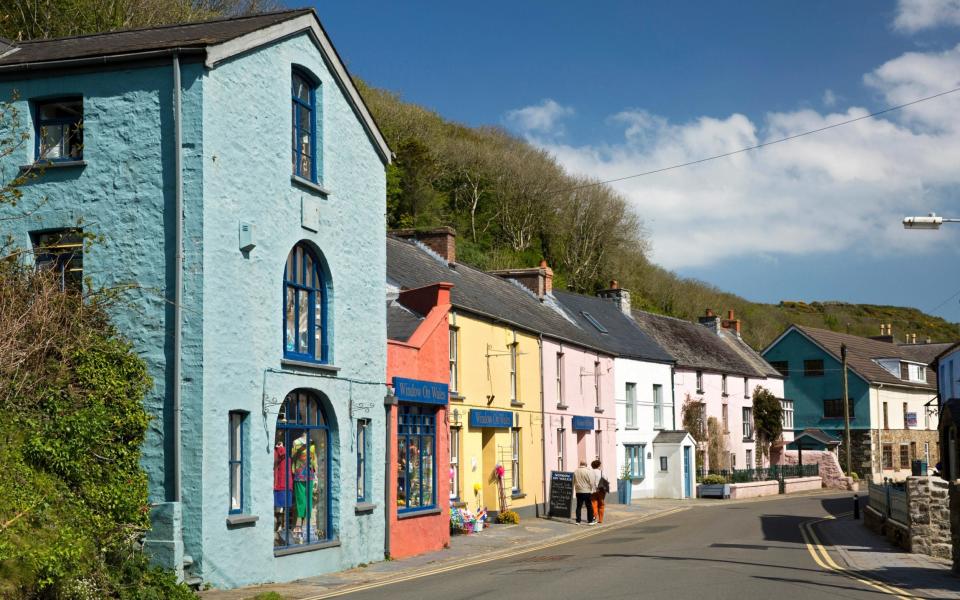Why house price growth in Wales outpaced the rest of the UK

House prices across Britain have risen in the past year at rates not seen since the financial crisis. But one country in particular has outpaced all others.
Property prices in Wales increased by more than 13pc in the year to May 2021, according to the Office for National Statistics.
This was a slight drop on the huge increase of 14.2pc recorded in April, yet it was still the biggest jump in the UK.
Prices in England, Scotland and Northern Ireland rose respectively by 9.7pc, 12.1pc and 6pc. So why are prices rising so much faster in Wales than elsewhere?
Wales has been hit with the familiar cocktail of the effects of lockdowns and a tax break boosting demand, plus a lack of supply.
But it also has been affected by another double whammy: a huge desire for second homes and holiday lets, and relatively affordable property which has fuelled price rises.
The Welsh land transaction tax holiday, its equivalent of the stamp duty break, did not apply to second home or buy-to-let purchases, in a bid to curtail the country’s holiday home boom.
But the second home market in the country still surged. With its promise of rugged coastlines, dramatic scenery and affordable property, it overtook Cornwall as Britain’s holiday home hotspot this year.
The growing demand for second homes is cause for concern for the Welsh government, which has introduced tax changes to discourage investors and protect locals priced out.
But the market was also boosted by relocators moving in. Many of the recent buyers were those with young families, who flocked to Wales from elsewhere in the UK for the promise of more space and a better quality of life.
The biggest increases in transactions were among those buying second homes and relocating to Wales for the lifestyle, said Lucian Cook, of estate agency Savills. “Transaction levels are comparable to those in the most active parts of South West England,” he said.

Agreed sales in Wales were 24pc higher in the first half of this year than the 2019 benchmark, according to analysis of TwentyCi data by Savills.
Part of the reason is that property in the country remains cheap in comparison to other holiday destinations in the UK and, even faced with additional tax surcharges, investors and homebuyers remain undeterred.
The average house in Wales was more than 50pc cheaper than the South West of England, with a price tag of £184,000 in comparison to £280,000.
This puts the average house price in Wales at just higher than its nil band land transaction tax threshold of £180,000, and much of the market will remain exempt from the charge, said Andrew Wishart, of analysis firm Capital Economics.
The strongest activity was seen in Torfaen, South Wales, where sales were up 71pc in the first six months of 2021 when compared to 2019 figures, and Monmouthshire, where sales jumped by 66pc.
Buyers also flocked to Pembrokeshire and the coastal district of Ceredigion, where sales spiked by 51pc and 49pc respectively.
Soaring demand means bidding wars and gazumping are now commonplace, said Carol Peett, of West Wales Property Finders, a buying agent. “In some cases buyers have neared the day of completion, only for the vendor to increase the asking price by £50,000 to £100,000.”
The second home market had steadily grown since Brexit, said Ms Peett, but it was the number of buyers permanently relocating to Wales which increased the most.
“We have also seen a lot of people who grew up here, but didn’t think they could stay because of work. Now working from home has become the norm they have the freedom to return and are settling,” she added.
Mr Wishart said: “Welsh house prices are also more affordable when compared to local incomes and this, combined with hybrid working allowing people to live further from the office, means there is more scope for house prices to continue rising.”
Estate agents have reported that demand for properties in Wales still far outstrips supply, despite the land transaction tax holiday ending in June. Unlike its English counterpart, the Welsh tax break has not been tapered.
Despite this, buyer inquiries in Wales rose faster than any other region in the UK during June, according to the latest survey by trade body the Royal Institution of Chartered Surveyors.

 Yahoo Finance
Yahoo Finance 